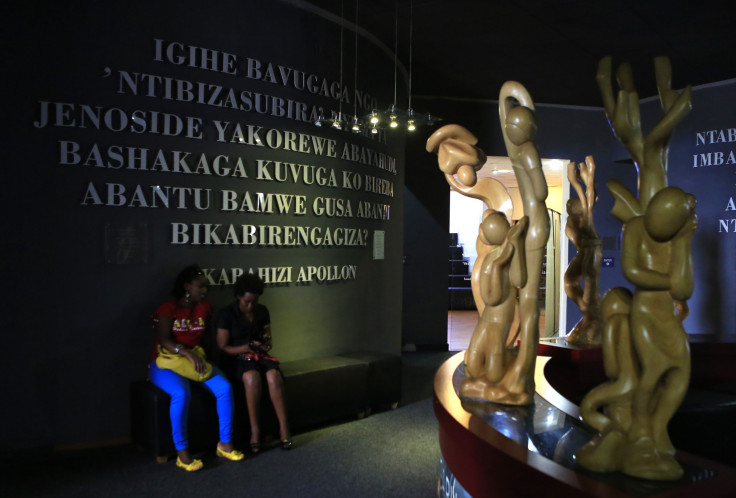Rwandan Intelligence Chief Arrested In Britain On Accusations Of War Crimes, Will Appear In Court Thursday

U.K. authorities have arrested Rwanda’s intelligence chief, Emmanuel Karenzi Karake, who is wanted in Spain for war crimes. Karake, 54, was arrested Monday at London's Heathrow Airport and will appear in court Thursday for a hearing. Karake is the first Rwandan official to be arrested in the European Union for war crimes.
“This was a legal obligation, following the issue of a valid European Arrest Warrant,” the British High Commission in Rwanda said on Facebook, referring to a warrant that is valid throughout all EU states and requires another member state to arrest and transfer a criminal suspect or sentenced person to the issuing state so he or she can be put on trial.
Karake, also known as KK, has been a senior intelligence and military officer in the Rwandan Patriotic Front (RPF), which brought an end to the genocide by Hutu extremists.
British authorities acted on a 2008 Spanish indictment that accused Karake and 39 others of ordering revenge massacres of Hutus and the murder of three Spanish aid workers, according to a European arrest warrant. The judge, Fernando Andreu of Spain’s National Court, said in 2008 that he also had sufficient evidence to implicate Rwandan President Paul Kagame, then head of the RPF, in a string of reprisal massacres after he and his forces seized power after the genocide.
The Rwandan genocide took place in 1994 when about 800,000 people were slaughtered in three months of ethnically motivated killings by Hutu rebels who targeted Tutsis as well as moderate Hutus. The genocide is known as one of the darkest chapters of America's foreign policy after it, along with its Western allies, failed to intervene.
Following the genocide, the International Criminal Court established a tribunal to try those accused of mass murders, crimes against humanity and ethnic cleansing. That tribunal, though, did not prosecute any of Kagame's forces.
Karake's arrest comes as a surprise as he has traveled throughout the EU several times since the indictment in 2008. Rwandan officials are making statements about his arrest, accusing the West of being biased when it comes to topics regarding the genocide.
Johnston Busingye, Rwanda's justice minister, said in an interview with the country's New Times newspaper that the arrest was not warranted. He said the Spanish indictment was politically motivated.
“I would be surprised if it is one the U.K. is acting on. We will contest in the courts. We have sought explanation from the U.K. on this matter as well," he said in the interview.
“Western solidarity in demeaning Africans is unacceptable!! It is an outrage to arrest Rwandan official based on pro-genocidaires lunacy!” Foreign Minister Louise Mushikiwabo wrote on her Twitter account.
Rwanda’s opposition FDU-Inkingi party welcomed the arrest of Karake.
“It is a sign of equal justice for those who have killed innocent people. If someone has been involved in crimes against humanity, it is good if he is brought before the law to explain himself," the party's vice president, Boniface Twagirimana, said.
© Copyright IBTimes 2024. All rights reserved.





















